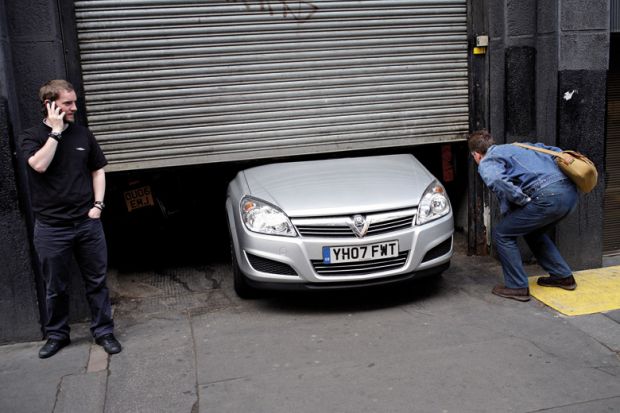Growing numbers of UK researchers say that their applications for European Union research funding are in doubt after the Brexit vote, while there are also reports of foreign scientists opting not to take up jobs in the UK owing to the post-referendum outlook.
Several researchers spoken to by Times Higher Education said that the vote had thrown into doubt funding applications to Horizon 2020, the EU’s current research programme, as continental partners expressed worries about whether UK participation could harm their projects’ chances of success.
UK universities currently benefit from EU research funding by about £1.2 billion a year, as well as gaining access to international networks of researchers.
Meanwhile, a survey on the impact of the Brexit vote circulated on social media by the lobbying group Scientists for EU has spotlighted worries for science.
According to the group, among the 167 scientists to respond, 51 said they had general concerns about the future of science in the UK, 33 said they were planning to leave the country, 20 cited worries about xenophobia, 16 said they had encountered disruption in Horizon 2020 applications and nine were foreign scientists who had decided not to take up UK job offers. Three respondents said they had encountered no problems raised by the referendum result.
For standard projects funded by Horizon 2020, three participants from different member states or associated countries must be involved (this rule does not apply to European Research Council funding, which is part of the programme).
Some EU researchers may be deterred from bidding for multi-year funding alongside UK partners, given the uncertainty over how long the nation will remain inside the EU.
Ali Mobasheri, a professor of musculoskeletal physiology at the University of Surrey, said that colleagues in Belgium and the Netherlands were now developing a separate bid for EU money for a project on personalised medicine because they felt that including UK partners was “too risky” after the Brexit vote.
“There’s fear of prejudice” against applications with UK partners, he said. “These are people we really know well and respect and trust, and it’s Brexit that has driven the wedge between us,” he added.
Although Professor Mobasheri said that he might still be able to draw up another application, and was “waiting to see” who else might join, his former partners in the Netherlands had a unique cohort of patients that put them in a strong position.
Ilaria Bellantuono, a professor in the University of Sheffield’s department of human metabolism, also said that the vote had thrown two submitted bids into confusion.
European Commission officials overseeing the applications were unable to say for sure what the future position of UK partners would be if the bid were successful, she said.
“We are basically in limbo so this ‘don’t know’ puts fear in everyone, so they don’t want to risk it,” she added.
Joshua Ralston, a lecturer in Muslim-Christian relations at the University of Edinburgh, said that partners from Germany, France, the Netherlands and Romania working towards a bid to study religious diversity in Europe were now debating whether including a UK partner was too risky.
“We had a 12-page concept paper drafted and were slated to meet in Germany this summer to discuss collaboration and the grant, but this is all up in the air now,” he explained.
Tim Blackman, vice-chancellor of Middlesex University, one of the UK universities most reliant on EU research funding, said: “Leaving the EU risks losing more than half of our research income, many of our best researchers and students, and crucial opportunities for collaboration and exercising leadership and influence in the world.”
In a speech on 30 June, universities and science minister Jo Johnson tried to reassure UK researchers, saying that “in legal terms…nothing has yet changed” and that it was “business as usual for Horizon 2020”.
He added: “I would be very concerned and I’d be grateful if you could bring to my attention any examples of discrimination against UK participants in these programmes.”
Carlos Moedas, European Commissioner for science, innovation and research, writing on THE’s website, also reassured UK researchers that “the referendum as such doesn’t change anything regarding their eligibility for funding under Horizon 2020”.
Professor Bellantuono, who is originally from Italy, said that the vote had left her “heartbroken” and feeling “betrayed”.
“I have been in the UK for 20 years; this is my home,” she said, adding that she had acquired British citizenship because of her fears of a vote for Brexit. “But I question whether I do want to stay,” she said.
Register to continue
Why register?
- Registration is free and only takes a moment
- Once registered, you can read 3 articles a month
- Sign up for our newsletter
Subscribe
Or subscribe for unlimited access to:
- Unlimited access to news, views, insights & reviews
- Digital editions
- Digital access to THE’s university and college rankings analysis
Already registered or a current subscriber? Login








